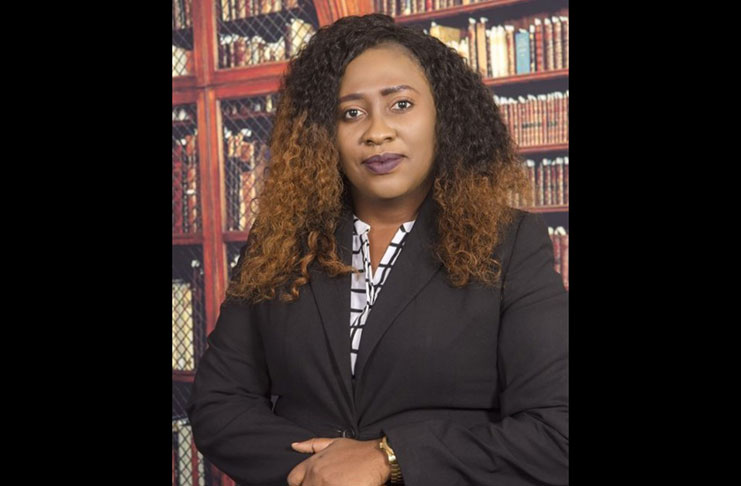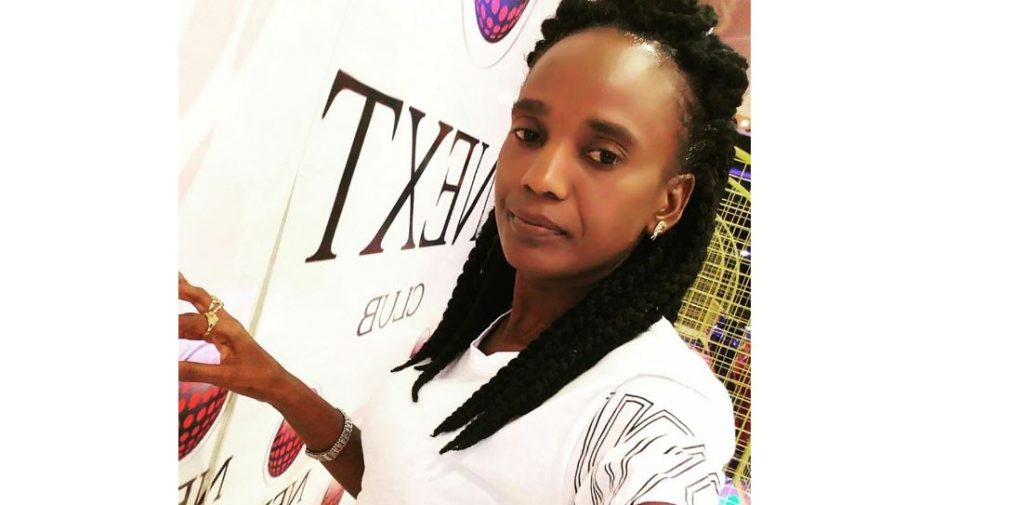
GECOM Chair pleads with Court of Appeal not to aid and abet elections fraud
Kim-Kyte Thomas, attorney for Justice (rt’d) Claudette Singh, Chair of the Guyana Elections Commission (GECOM), on Saturday pleaded with the Court of Appeal not to allow itself to be used to help with the perpetuation of electoral fraud in Guyana.
She argued that is exactly what APNU+AFC agent Misenga Jones was trying to do when she filed her case in the High Court and it is what she is again trying to do in appealing Monday’s ruling of Chief Justice Roxane George.
Jones is again challenging the constitutionality of the order which provided for a recount of all votes cast on March 02 and wants the declarations made before the recount to be used to make a declaration and that GECOM is bound to act on those declarations as made by the Chief Elections Officer (CEO).
Kyte-Thomas, in oral arguments, contended that what the applicant is asking the Courts to do is to aid and abet a series of illegalities which led to the March 13 declaration in District Four and the preparation of a report by the Chief Elections Officer for a declaration of the results of the elections to be made.

She said the Court can act to ensure that an officer does not commit certain illegalities. Even when the High Court had ruled that the Returning Officer in District Four had acted unlawfully in making his first declaration and thus voided it, he still attempted to make declarations in breach of the Court’s order, acting outside of the clear provisions of electoral statutes.
And it was in the midst of all that, Kyte-Thomas stated, that GECOM had to step in to ensure its officer acts lawfully and determined a recount was needed to establish a credible count.
But the applicant wants the Court to set aside and remove the tabulations from the national recount when the country’s highest court – the Caribbean Court of Justice (CCJ) – has already ruled that the recount was transparent and no other results stand.
What the applicant wants is for the declaration of March 13, deemed fraudulent, to be used.
Kyte-Thomas called on the Court of Appeal not to allow itself to be used as an instrument to perpetuate that fraud.
She said that all of the applicant’s allegations, contentions, and attacks on specific pieces of legislation dealing with elections are to be addressed by an elections petition.
Kyte-Thomas declared that the Chief Elections Officer must comply with the directions he was given by GECOM to use the results of the national recount to prepare a report which would be used to make a declaration.
The Attorney General Basil Williams contended that the Chief Justice erred in law and misdirected herself and that she misrepresented and misconstrued the provisions of Article 177 (2) (b) when she held that the Chief Elections Officer cannot act on his own and when she found that the CEO does not have a constitutional mandate under Article 177.

Article 177 (2) (b) states that where there are two or more presidential candidates, the one to whom more votes are cast shall be deemed elected as president and shall so be declared by the Chairman of the Elections Commission “acting only” after such advice has been tendered to the elections commission at a duly summoned meeting.
The Attorney General stated that the requirements of Article 177 (2) (b) are mandatory as the words “shall” and “acting only in accordance with” are used.
There is nothing ambiguous in article 177 (2) (b) and the text does not give rise to complications, the Attorney General stated.
The Attorney General argued that nothing in the provision speaks to the Chief Elections Officer being directed by the Chairman or the Commission in tendering his advice or of the chairman making a declaration based on anything other than the advice of the Chief Elections Officer.
The Chief Justice had ruled that her understanding of the provision was that GECOM cannot act on the advice of anyone or any other entity outside of GECOM. She had also ruled that provision cannot mean that the Chief Elections Officer can act as a “lone ranger” since he is subject to the direction of GECOM.
But the Attorney General argued that the literal meaning of the words in the Constitution must be used coupled with the role of the Chief Elections Officer as it relates to this part of the election process.

Williams said the role of the Chief Elections Officer under the Constitution must be seen as separate from his day to day administrative functions where he is under the direction of the Commission.
But he said the promulgation of his specific advisory role under Article 177 (2) (b) must not be viewed as ordinary and taken lightly as elections are to be seen as being free of interference – even the interference of the Commission – which are made up of political commissioners.
Accordingly, he contended that the words “acting only in accordance with the advice of the Chief Elections Officer” are deliberate and clear and must be given its true meaning.
But Kyte-Thomas argued that the Chief Elections Officer is subject to the Commission and the matter at hand is simply an officer being insubordinate and is guilty of being in dereliction of his duties and the court can intervene in matters of insubordination.
Kyte-Thomas argued that the Chief Elections Officer is not a constitutional officer and that is why the Chief Justice intervened to tell him he must act as directed by GECOM and that he must act in accordance with the recount order.
She noted that the Court can intervene to ensure that a statutory officer complies with the clear provisions of the statute.
The law says that the Chief Elections Officer would prepare his election report based on the declarations by the Returning Officers.
Kyte-Thomas noted that in the recount process the District Coordinators were equivalent to the Returning Officers provided for under the electoral laws and it is their certification of the results in the ten electoral districts that must stand and be sued to declare the results of the elections.
The recount shows the PPP won the elections but the applicant wants the previous declarations, including the fraudulent District Four declaration, to be used to swear in her President, David Granger.







If lil Misenga wants a fraudulent election……can’t lil Misenga get what she wants? What if she pouts? I wonder if she knows she is in Court today.